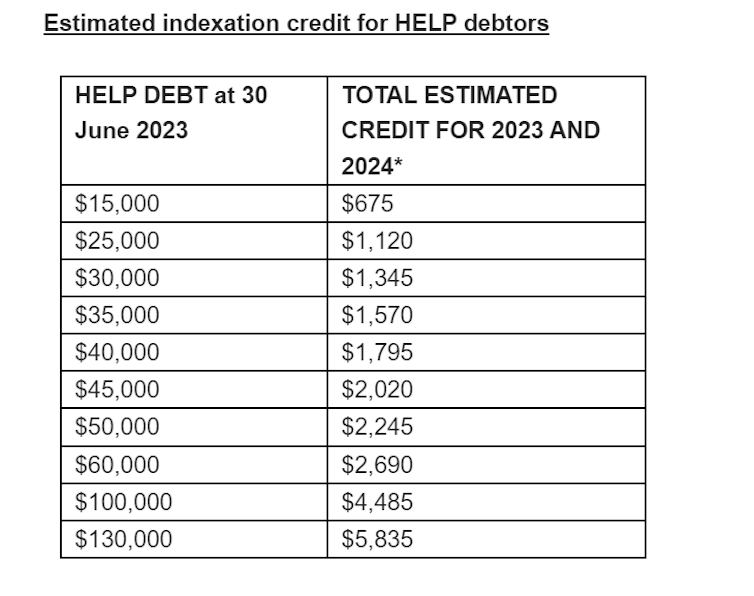The government will cap the HELP indexation rate to be the lower of either the Consumer Price Index (CPI) or the Wages Price Index (WPI), backdated from June 1 last year. At present the indexation is based on the CPI.
The new indexation arrangement will be backdated to all HELP, VET Student Loan, Australian Apprenticeship Support and other student support loan accounts operating on June 1 last year.
The government’s recent Universities Accord report pointed to the need for reform of the student debt arrangements, and recommended rejigging indexation, although it did not go as far as backdating.
The report said: “Australians should not be deterred from higher education because of the increased burden of student loans”.

People with these debts were hit hard by high inflation, with a jump in last year’s CPI indexation rate of 7.1%. The 2023 indexation rate based on the Wage Price Index would have been 3.2%
Someone with an average HELP debt of $26,5000 will have about $1,200 wiped from their outstanding HELP loans this year.
Some 525,302 Australians owe between $20,000 and $30,000.
The change will need legislation.
Education Minister Jason Clare said: “The Universities Accord recommended indexing HELP loans to whatever is lower out of CPI and WPI.
“We are doing this, and going further. We will backdate this reform to last year. This will wipe out what happened last year and make sure it never happens again.”
The Minister for Skills and Training Brendan O’Connor said: “This continues our work to ease cost of living pressures for more apprentices, trainees and students, and reduce and remove financial barriers to education and training.
“By backdating this reform to last year, we’re making sure that apprentices, trainees and students affected by last year’s jump in indexation get this important cost-of-living relief.”![]()
Michelle Grattan, Professorial Fellow, University of Canberra
This article is republished from The Conversation under a Creative Commons license. Read the original article.














